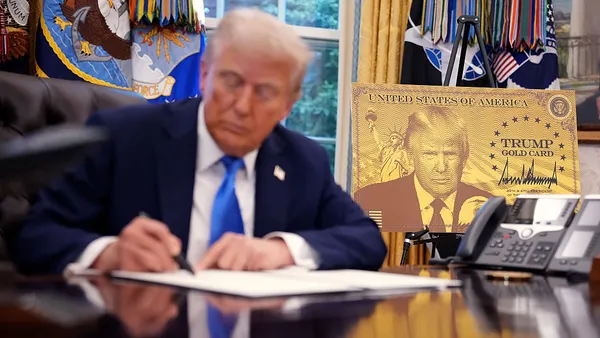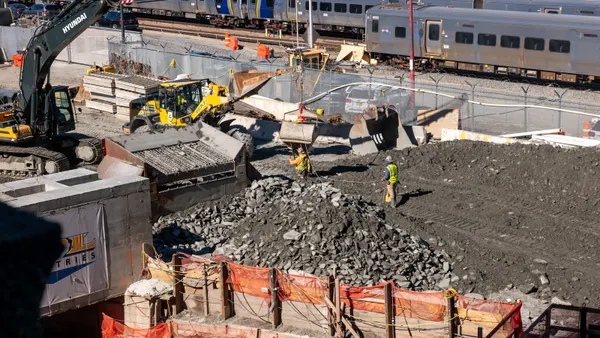Dive Brief:
- The governors of Iowa and Wisconsin are the latest to sign anti-project labor agreement (PLA) legislation into law, bringing the total number of states banning PLAs from mandated use in state and local projects to 23, according to the Associated Builders and Contractors.
- Critics of PLAs argue that the agreements, which typically are entered into with union trade organizations, prevent full participation by nonunion contractors and workers. However, PLA proponents maintain that unions are able to secure fair wages for all workers on a project and ensure quality, skilled workers.
- The Associated Builders and Contractors, which supports anti-PLA legislation, has asked President Donald Trump to forbid the PLA requirement on federal and federally assisted projects.
Dive Insight:
In the most general terms, a PLA is an agreement that specifies the workforce for a construction project, how much those workers are paid and what kind of benefits they're entitled to. These agreements have become a major point of contention in the construction industry as unions start to see their control over certain markets fade.
So far, 28 states have enacted right-to-work legislation, which means that nonunion construction workers don't have to join a union or pay union dues on a project even if the unions have negotiated the labor rates and benefits via a collective bargaining process.
Unions maintain that it's unfair for workers to benefit from often hard-won employer concessions contained in PLAs, but anti-PLA organizations like the ABC say that even though the agreements don't expressly forbid participation by nonunion contractors and labor, the conditions contained in most PLAs make it difficult for them to participate.
Not long after the inauguration, the ABC and other industry groups called on Trump to repeal President Barack Obama’s 2009 Executive Order 13502, which encourages government agencies to require PLAs on projects valued at more than $25 million. So far, Trump, who won some union support in the election, has not taken action on the issue.













